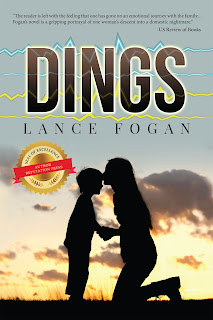BJ Mac, Medical and Health Writer, and neurologist, Amit M. Shelat, D.O., reviewed this subject in 2021 and their observations will help explain common
symptoms with your epilepsy.1
Added to your epilepsy, you feel exhausted, tired, or
weak. Fatigue is a much more common symptom in people living with epilepsy than
in the general population. Feelings of exhaustion and weakness can affect daily
quality of life. Understanding this, there are some ways to help manage
epilepsy-related fatigue.
What
Does Fatigue with Epilepsy Feel Like?
The fatigue felt by people living with epilepsy is
characterized by mental and physical experiences of persistent and extreme
weakness, tiredness, and exhaustion.
One patient described being more emotional because of
fatigue: “Does anyone feel so tired that they feel sad? This often happens to
me. I am on a lot of medication, and my seizures are not under control, so I
guess I have many reasons to be tired.”
Another patient reported that fatigue causes daytime
sleepiness: One patient described the impact of seizure-related fatigue on her
quality of life, writing, “For several years, I wake up after a seizure, and I
am tired for up to seven days and in bed pretty much all day every day. That is
the primary reason I lost my job.”
What Causes Fatigue in Epilepsy?
Several factors can cause a person with epilepsy to
experience fatigue.
Depression
Depression is a known
comorbidity (co-occurring condition) of epilepsy, with symptoms that vary from
person to person. A study2 using measures
called the Fatigue Severity Scale and Fatigue Impact Scale revealed a high
prevalence of depression-related fatigue among people living with epilepsy.
This fatigue may sometimes trigger epileptic seizures.
A cycle can start to develop: Depression causes fatigue, which contributes to
seizures. These seizures then cause more fatigue, which contributes to
depression, and so on. Talk to your doctor about how to treat depression to
break this cycle.
Many patients agree that dealing with depression is a
common aspect of living with epilepsy: “I never thought I would ever have to
deal with depression. With epilepsy, depression is a daily battle.”
Nocturnal Seizures
Another important risk factor of developing fatigue
when living with epilepsy is poor sleep or sleep impairment. Nocturnal seizures
(seizures that occur while a person is sleeping) can affect a person’s sleep
quality.
A person is considered to have nocturnal seizures if
more than 90 percent of their seizures occur when
sleeping, which is the case in up to 45 percent of people living with epilepsy.
Both generalized and
focal seizure types can occur as nocturnal seizures.
Nocturnal seizures tend to occur during the first, lighter stages of sleep or upon waking.
One patient described nighttime seizures as a source
of fatigue: “I recently had several nocturnal seizures, and I am now very
exhausted. It will take three days for my body to get back to normal. It takes
so much out of you.”
Another person described how nocturnal seizures
interrupt her sleep rhythm and cause fatigue the next day: “Does anyone else ever
have a seizure in their sleep and find it hard to fall back asleep? Then during
the day, it can completely take your energy away.”
Postictal Fatigue
There are several stages to a seizure:
- Prodromal
phase — When symptoms begin.
- Aural
phase — When altered perception or sensations occur.
- Ictal
phase — The actual seizure.
- Postictal
phase — Recovery time after a seizure.
- Interictal
phase — The time in between seizures.
Postictal phases have been found to have higher chronic
fatigue scores and fatigue impact scores than ictal phases, with people
reporting more fatigue and lower energy during the postictal phase. In other
words, the recovery period after a seizure is a time of intense fatigue.
Many people reported needing to sleep due to intense
fatigue during this phase. “I always go to sleep after a seizure,” wrote one
patient. “It’s often compared to running a marathon. Your muscles are weak,
everything hurts, and you are plain tired.”
Antiseizure Medications
Antiepileptic drugs commonly cause fatigue. A
change of medication or time to adjust to your treatment plan may be needed to
reduce this fatigue.
One patient said about medication-related fatigue:
“When I took that medication, I experienced fatigue, anxiety, fear, anger, and
mood swings.” Offering some great advice: “When side effects become
unmanageable, it’s time to talk to your neurologist and ask for a drug that has
fewer side effects.”
Managing Epilepsy-Related Fatigue
Managing fatigue with epilepsy can be challenging
because its different causes can be interrelated. Tracking symptoms of fatigue
and discussing causes and treatments with your health care team is the best
place to start.
1) BJ Mac, Medical and Health Writer, Medically
reviewed by
Amit
M. Shelat, D.O. 2021
2) Fatigue in epilepsy: A systematic review and
meta-analysis Oh-Young Kwona , Hyeong Sik Ahnb , Hyun Jung Kimb, * a Department
of Neurology and Institute of Health Science, Gyeongsang National University
School of Medicine, Jinju, Republic of Korea b Institute for Evidence-Based
Medicine, Korea University College of Medicine, Seoul, Republic of Korea
Lance Fogan, M.D. is Clinical Professor of Neurology at the David Geffen School of Medicine at UCLA. His hard-hitting emotional family medical drama, “DINGS, is told from a mother’s point of view. “DINGS” is his first novel. Aside from acclamation on internet bookstore sites, U.S. Report of Books, and the Hollywood Book Review, DINGS has been advertised in recent New York Times Book Reviews, the Los Angeles Times Calendar section and Publishers Weekly. DINGS teaches epilepsy and is now available in eBook, audiobook, soft and hard cover editions.
